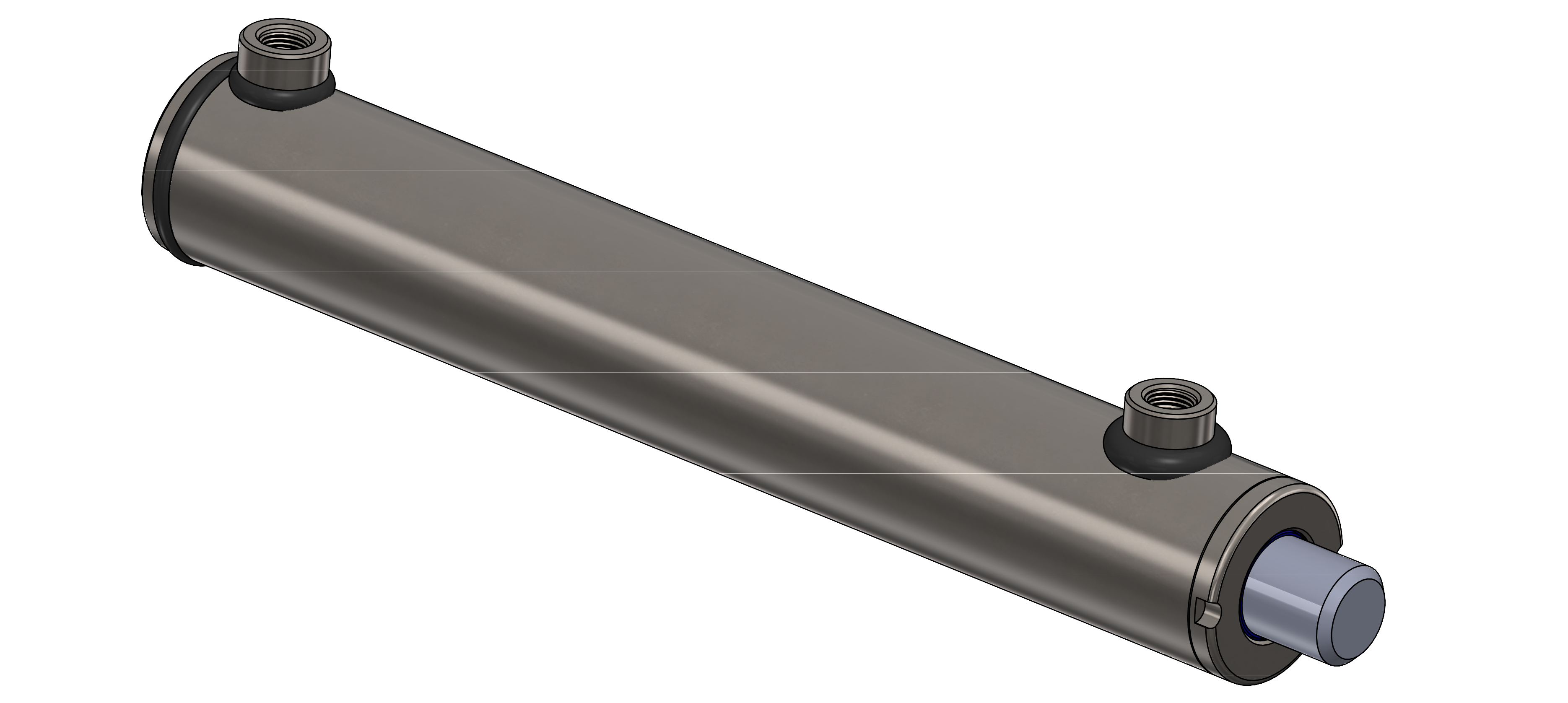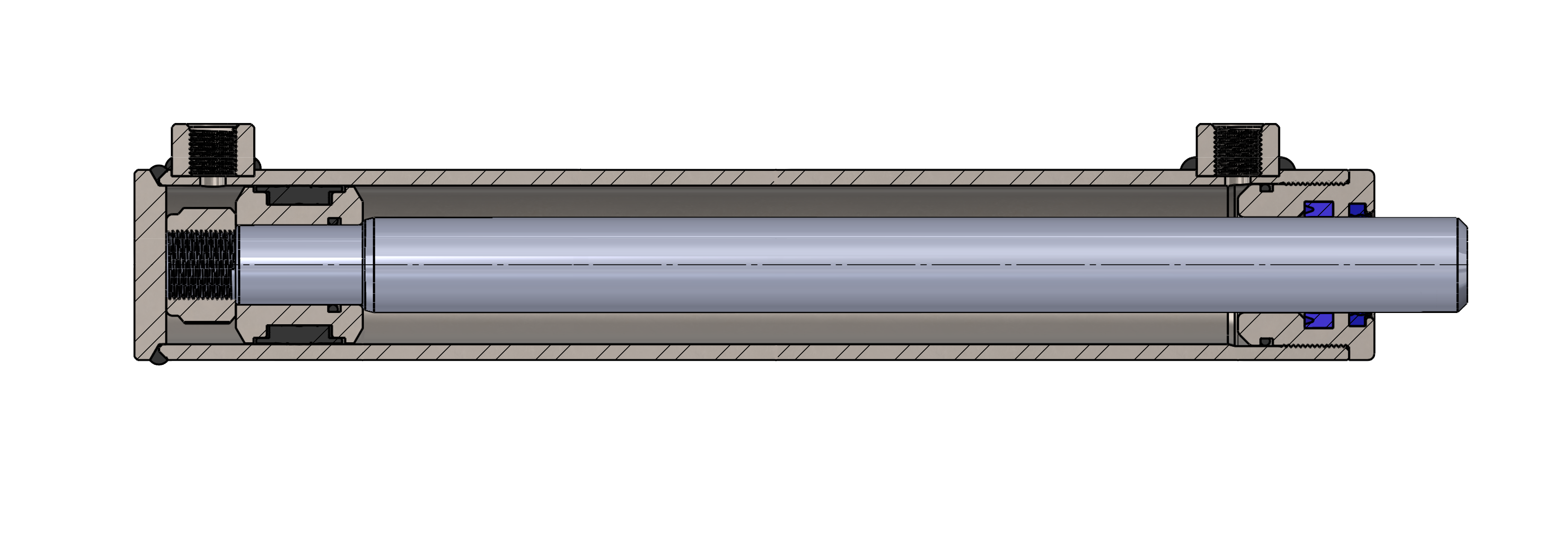HYDRAULIC CYLINDER STANDARD 50/30-700
DIMENSIONS

|
STANDARD |
E |
D (stroke) |
|
[mm] |
||
|
50/30-100 |
240 |
100 |
|
50/30-150 |
290 |
150 |
|
50/30-200 |
340 |
200 |
|
50/30-250 |
390 |
250 |
|
50/30-300 |
440 |
300 |
|
50/30-350 |
490 |
350 |
|
50/30-400 |
540 |
400 |
|
50/30-450 |
590 |
450 |
|
50/30-500 |
640 |
500 |
|
50/30-550 |
690 |
550 |
|
50/30-600 |
740 |
600 |
|
50/30-700 |
840 |
700 |
|
50/30-800 |
940 |
800 |
|
50/30-900 |
1040 |
900 |
|
50/30-1000 |
1140 |
1000 |
|
50/30-1100 |
1240 |
1100 |
|
50/30-1200 |
1340 |
1200 |
|
50/30-1300 |
1440 |
1300 |
|
50/30-1400 |
1540 |
1400 |
|
50/30-1500 |
1640 |
1500 |
HYDRAULIC CYLINDERS
A hydraulic cylinder converts hydraulic energy into linear force, which results in movement. Based on the principle of Pascal's law, the force created by the pressure of a closed liquid (oil) is used to create a movement. When hydraulic fluid is pumped to one side of the cylinder, it pushes the piston and creates a linear movement in the desired direction.
A conventional two-way hydraulic cylinder ("a differential cylinder") has two connections (for the hydraulic hose), allowing linear movement in both directions.
 |
 |
Due to the different ratios of the surface of the pressed oil on one or the other side of the cylinder, it provides different strengths when stretching or shrinking. As a result, the cylinder's (piston's) speed is also different (faster or slower). When "stretching", the oil acts on the entire surface of the piston. As a result, the hydraulic cylinder can exert a higher force, but it moves slower. The opposite, when "shrinking", where the surface is smaller by the diameter of the piston, the cylinder provides a smaller force, but this means it can move faster.
Use of hydraulic cylinders:
Hydraulic cylinders are useful wherever more power is needed. In agriculture, hydraulic cylinders are used for tractors - lifting arms of three-point hydraulics, top links, hydraulic steering wheels, loaders, tractor front hydraulics, etc. Hydraulic cylinders are also widely used on various tractor attachments, such as loaders, tipper trailers, wood splitters, movement mulchers, soil turning plows, snow plows, forestry winches etc.
Moreover, hydraulic cylinders are also very common in forestry, mechanical engineering, construction, shipbuilding, the energy-supply industry, the food industry, and the automotive industry.

There are several types of hydraulic cylinders (different attachments):
Hydraulic cylinders are available in various dimensions and with different mountings to suit a variety of your needs.
 |
Hydraulic cylinders
"STANDARD"
|
 |
 |
Hydraulic cylinders
"HOLE"
|
 |
 |
Hydraulic cylinders
"POINT"
|
 |
 |
Hydraulic cylinders
"FORK"
|
 |
 |
Hydraulic cylinders
"FLANGE"
|
 |


















